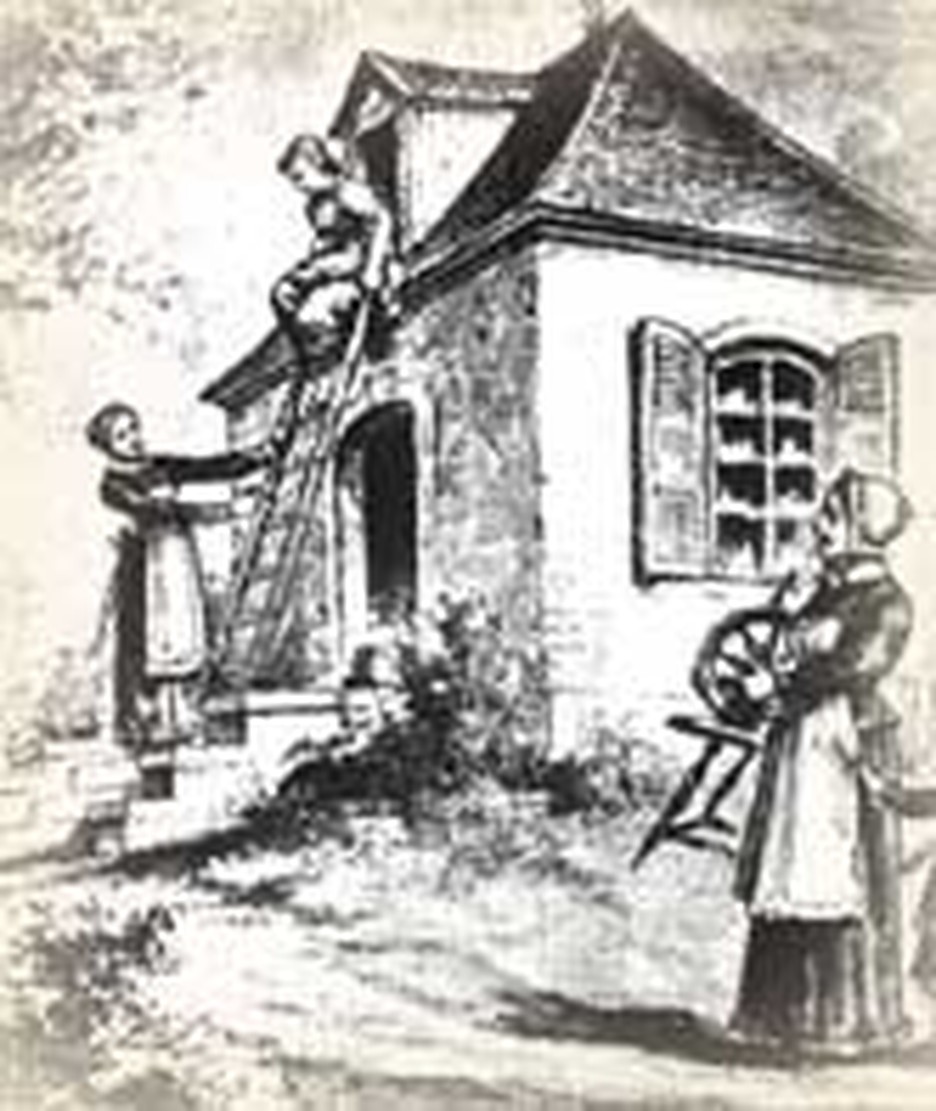
The work couldn't wait. Although he had no one to instruct and manage his deaconess training center, Lutheran pastor Theodor Fliedner opened it anyway at Kaiserswerth, Germany on this day, October 13, 1836.
Theodor was one of those men who cannot see a need without trying to meet it. He had already been in the forefront of prison reform and providing release programs. An incident from his life will suggest the level of his zeal: he once requested to be locked up himself so that he could see what conditions were like inside prison walls. He figured the experience would make him a better reformer. His request was denied, but he was given permission to preach in Dusseldorf prison. He trudged several miles to get there every second Sunday until a regular chaplain was appointed; and he opened a half-way house for newly-released women prisoners.
He also opened a nursery for children, a cutting-edge concept in that day.
But Theodor Fliedner is best remembered as the leading inspiration behind the modern Protestant deaconess movement. The Moravians had established the office of deaconesses to perform a spiritual service by caring for needy and sick people. Theodor observed their example and was impressed. And although the Catholic church had never lost its various orders of charitable women, Theodor was the man who revived the idea within mainstream Protestantism.
Seven days after opening his first deaconess training center, Theodor interviewed Gertrude Reichardt. The 48-year old woman was a "can-do" person. The daughter of a physician, she applied for deaconess training, but Theodor saw her as the answer to prayer: the work needed leadership. Gertrude was reluctant to accept his offer, but Theodor's joy at receiving a box of bandages during the interview swayed her to say yes. In addition to practical nursing skills, she sought to increase the spiritual devotion of the applicants who were admitted after her.
As a historical note, Florence Nightingale was one of the women who trained at Kaiserswerth (in 1850). History books often attribute the emergence of modern military nursing to her zeal.
Although foes predicted that Theodor's work would quickly shrivel up, by his death in 1864, there were dozens of deaconess motherhouses (each one a training center in its turn) staffed by hundreds of deaconesses. Many hospitals in the United States got their start (and often their names) from the work of deaconesses. Theodor did not use his deaconesses up and then discard them. He founded a rest home for their retirement.
Bibliography:
- "Fliedner, Theodor." https://83.1911encyclopedia.org/F/FL/ FLIEDNER_THEODOR.htm
- "Theodor Fliedner, pastor, founder." The Lutheran Calendar. https://elvis.rowan.edu/~kilroy/JEK/10/05.html
- Wassilak, Kristen. "I Must Do Something." https://www2.curf.edu/~crfdeaconess/ something.htm
- Wheeler, Henry. Deaconesses Ancient and Modern. New York: Hunt and Eaton, 1889.
- Various encyclopedia and internet articles.
Last updated July, 2007



.jpg)